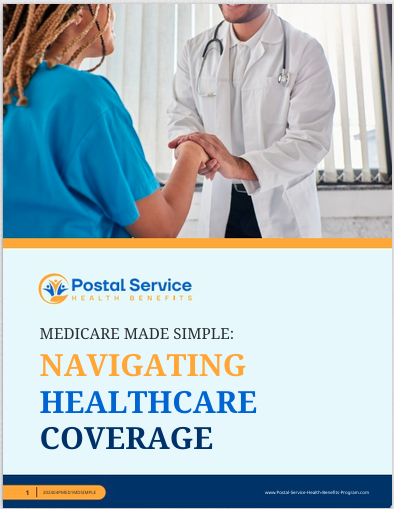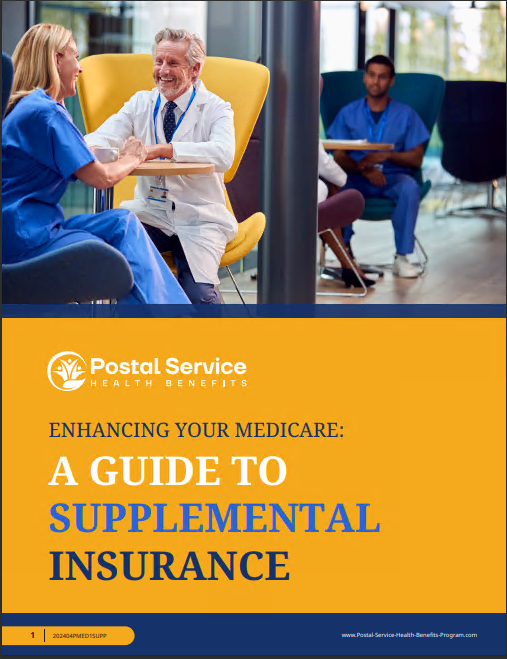Key Takeaways
- Postal unions, NALC and APWU, are advocating strongly for employee and retiree rights during the PSHB transition.
- The focus is on ensuring the protection of existing benefits and minimizing disruptions for postal workers.
Postal Unions Are Making Their Voices Heard on PSHB—How NALC and APWU Are Fighting to Protect Workers as the Transition Nears
The upcoming Postal Service Health Benefits (PSHB) program, launching in 2025, has sparked significant discussions within the postal community. With such a fundamental shift in healthcare benefits for employees and retirees, the National Association of Letter Carriers (NALC) and the American Postal Workers Union (APWU) have stepped up their efforts to protect workers’ rights and interests. As the transition date nears, these unions are advocating for fair implementation, transparency, and safeguards to ensure that postal workers’ benefits remain comprehensive and uninterrupted.
What Is the PSHB Program, and Why Does It Matter?
The PSHB program is set to overhaul the health benefits available to postal workers and retirees, separating their healthcare options from the larger Federal Employees Health Benefits (FEHB) program. Designed to better suit the specific needs of postal employees, the PSHB will be a significant adjustment. Its objective is to offer tailored healthcare solutions and potentially reduce costs for the Postal Service. However, with change comes uncertainty, and that’s where the unions’ efforts come into play.
How Are NALC and APWU Addressing Worker Concerns?
The NALC and APWU have long been vocal supporters of their members’ rights. As the PSHB transition approaches, both unions are pushing to ensure that the switch does not negatively impact employees’ existing benefits or create confusion among retirees. Here are some of the key ways they are addressing these concerns:
-
Advocating for Seamless Transition Plans
The unions are working closely with policymakers to develop a transition plan that minimizes disruptions. Their goal is to ensure that postal employees and retirees continue receiving uninterrupted healthcare services during the switchover period. -
Emphasizing Transparency and Communication
One major concern is that many workers may not fully understand how the new PSHB program will work. The NALC and APWU are campaigning for clear, accessible information to be provided to all affected parties. They believe that transparency will alleviate concerns and help employees make informed decisions about their healthcare options. -
Fighting for Comprehensive Benefits
A priority for both unions is ensuring that the PSHB program maintains or improves the level of benefits currently available under the FEHB. The unions are pressuring decision-makers to include comprehensive coverage for essential services, such as preventive care, emergency treatment, and prescription medications, in the new plans.
What Are the Main Challenges Facing the Transition?
While the unions are working hard to protect employees’ interests, the transition to the PSHB is not without its challenges:
- Regulatory Adjustments: As the PSHB diverges from the FEHB, new regulations will need to be established to govern its implementation. The unions are lobbying for fair and worker-friendly regulations that safeguard the benefits postal employees currently enjoy.
- Cost Management: Although the PSHB aims to reduce costs for the Postal Service, there is concern that these savings might come at the expense of employees’ benefits. The unions are actively fighting to prevent cost-cutting measures that could reduce the scope of healthcare coverage.
- Ensuring Adequate Coverage Options: The transition may result in a variety of new plan options, and unions want to ensure that every employee and retiree can access a plan that meets their needs. By advocating for a diverse range of coverage options, the NALC and APWU aim to minimize any adverse impact on workers.
Why Is Advocacy Important During This Transition?
As the Postal Service undergoes these major changes, the unions’ advocacy efforts become increasingly critical. Postal workers and retirees have a lot at stake: their access to reliable healthcare depends on how the PSHB program is rolled out. By actively participating in discussions with policymakers, NALC and APWU are positioning themselves as essential voices for their members.
What Can Postal Workers and Retirees Do to Stay Informed?
Staying informed is crucial for all postal employees and retirees affected by the upcoming transition. Here are some steps they can take to ensure they understand their options:
- Engage with Union Resources: Both the NALC and APWU offer educational resources and updates on the PSHB transition. Members are encouraged to regularly visit their union’s website or attend informational sessions.
- Review Healthcare Options Early: As the transition date nears, more information about specific plan options will become available. Workers and retirees should review these options early and seek guidance from their unions to make the best decision for their healthcare needs.
- Stay Updated on Legislative Changes: Postal workers should pay attention to legislative developments that might affect the PSHB’s implementation. By keeping up with the latest news, they can better prepare for any changes that might arise.
How Are Unions Ensuring Retirees Are Protected?
Retirees are among the most concerned groups when it comes to the PSHB transition. Many fear that their healthcare benefits could be reduced or altered in a way that leaves them vulnerable. The NALC and APWU are making retirees a priority by:
-
Pushing for Stability in Coverage
Retirees often rely heavily on consistent healthcare services. The unions are fighting for stability, ensuring that the plans available to retirees under the new PSHB program remain consistent with what they currently receive. -
Ensuring Fair Costs for Retirees
The unions are also focusing on preventing any unexpected increases in premiums or out-of-pocket costs for retirees. Their efforts aim to ensure that retirees, many of whom are on fixed incomes, are not disproportionately impacted by the transition.
What Are the Next Steps for NALC and APWU?
As 2025 approaches, the NALC and APWU will continue their efforts to influence the PSHB’s development and implementation. Their strategies include:
- Engaging with Lawmakers: The unions are increasing their lobbying efforts, working directly with lawmakers to push for regulations that protect workers and retirees.
- Collecting Feedback from Members: To better represent their members’ needs, the unions are conducting surveys and gathering feedback from postal workers and retirees. This feedback will be used to advocate for changes that reflect the genuine concerns of those affected.
- Offering Personalized Support: The NALC and APWU plan to offer one-on-one support services, helping employees and retirees navigate the transition process and select the best health plan for their needs.
Looking Ahead: What Can Workers Expect from the PSHB?
As the unions continue their advocacy, postal employees and retirees can expect ongoing updates and support throughout the transition period. The NALC and APWU’s commitment to their members means that they will remain at the forefront of discussions, ensuring that the PSHB rollout is as seamless as possible. By staying engaged with union resources and updates, postal workers can navigate this transition with confidence.
How Can Employees Access Union Support?
Employees seeking support or information about the PSHB can contact their local union representatives or visit the NALC and APWU websites. Both unions offer resources specifically designed to help members understand the upcoming changes, along with contact information for more personalized assistance.
Advocating for a Fair Future in Postal Healthcare
As the 2025 transition date for the PSHB program approaches, NALC and APWU remain steadfast in their commitment to advocating for postal employees and retirees. Their efforts aim to ensure that workers receive the healthcare benefits they deserve while minimizing disruptions during the change. By staying informed and engaging with union resources, postal workers can take proactive steps to protect their interests and make the most of the new PSHB offerings.
Contact Information:
Email: [email protected]
Phone: 9159008284
Bio:
As a licensed agent, I can help you better understand your Medicare options and help you choose the plan that’s right for you. Finding a plan that provides you with value and access to quality care is important. I welcome the opportunity to discuss how a Medicare plan can fit your budget and lifestyle. I can also find out if you’re eligible for Extra Help and other money-saving programs, as well as assist with your Postal Health Benefits (PSHB). Please contact me at your convenience to learn more!






